Filter by

Intellectual property enclosure and economic discourse in the 2012 London Oly…
Special legislation associated with mega sporting events has enabled new forms of cultural enclosure, effectively commoditising aspects of cultural expression that previously remained in the public domain. In this article, the authors examine the tension between economic and political justifications for hosting the Olympics and the intellectual property enclosures that are imposed upon host nat…
- Edition
- Volume 37, Issue 3 April 2015, pages 409-421
- ISBN/ISSN
- 0163-4437
- Collation
- -
- Series Title
- Media Culture & Society
- Call Number
- -

Open culture and innovation: integrating knowledge across boundaries
What does open source mean for culture? For knowledge? As cultural production has come to be characterized by contribution as well as consumption and as alternative modes of intellectual property transfer challenge the �dominant paradigm� that knowledge and information should be protected and monetized, the logic of �open sourcing� has extended into many cultural spheres. This article positions…
- Edition
- Volume 37, Issue 3 April 2015, pages 376-393
- ISBN/ISSN
- 0163-4437
- Collation
- -
- Series Title
- Media Culture & Society
- Call Number
- -

Battle for control? Copyright, football and European media rights
The position of copyright in the arena of sports content rights and property rights of sporting organizations is a highly contested area of legal and commercial interest in the digital age. At its core is the issue of whether copyright can be incorporated into sports rights contracts as it has been for many years. This article identifies the ramifications of this debate for the existing busines…
- Edition
- Volume 37, Issue 3 April 2015, pages 359-375
- ISBN/ISSN
- 0163-4437
- Collation
- -
- Series Title
- Media Culture & Society
- Call Number
- -

Copyright and musicians at the digital margins
While there is research into consumer attitudes to copyright and downloading, and the music industry has made clear its own views in evidence to the Hargreaves Review and other forums, relatively little is known about musicians� attitudes to copyright. This article reports on those musicians who are negotiating the new terrain created by digitization and its accompanying business models. Are th…
- Edition
- Volume 37, Issue 3 April 2015, pages 342-358
- ISBN/ISSN
- 0163-4437
- Collation
- -
- Series Title
- Media Culture & Society
- Call Number
- -

Editorial: IP, copyright and cultural production
This editorial outlines the important role that IP issues are increasingly playing across the media industries. It identifies some of the key sectors discussed in this issue of the journal and why particular media industries face specific IP challenges even in an age of converging media.
- Edition
- Volume 37, Issue 3 April 2015, pages 339-341
- ISBN/ISSN
- 0163-4437
- Collation
- -
- Series Title
- Media Culture & Society
- Call Number
- -

Radio in the workplace: a liminal medium between work and leisure
The article analyses the presence of radio in the workplace. Victor Turner�s work concerning the liminal sphere in social life provides the theoretical underpinning for examination of the specific features of radio communication in the context of the blurring boundary between work and leisure. Radio appears the medium best suited to the workplace, on one hand creating an environment conducive t…
- Edition
- Volume 37, Issue 2 March 2015, pages 270-287
- ISBN/ISSN
- 0163-4437
- Collation
- -
- Series Title
- Media Culture & Society
- Call Number
- -

Facing up to Facebook: politicians, publics and the social media(ted) turn in…
Social media have an increasingly important place in the lives of citizens, and their potential to expand the reach of communication messages beyond individual networks is attractive to those looking to maximise message efficiency. The influence of Facebook in Obama�s 2008 campaign success galvanised many politicians into taking it seriously as a campaign tool. Our study explored the Facebook w…
- Edition
- Volume 37, Issue 2 March 2015, pages 251-269
- ISBN/ISSN
- 0163-4437
- Collation
- -
- Series Title
- Media Culture & Society
- Call Number
- -
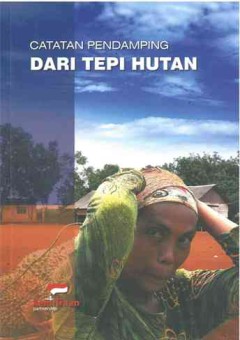
Catatan pendamping dari tepi hutan
- Edition
- -
- ISBN/ISSN
- -
- Collation
- vii, 76p.; 25 cm
- Series Title
- -
- Call Number
- 333.7 RET c
- Edition
- -
- ISBN/ISSN
- -
- Collation
- vii, 76p.; 25 cm
- Series Title
- -
- Call Number
- 333.7 RET c
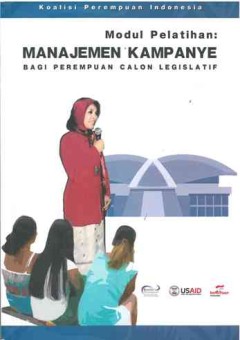
Modul pelatihan: manajemen kampanye bagi perempuan calon legislatif
- Edition
- -
- ISBN/ISSN
- 978-979-19161-8-9
- Collation
- vii, 130p.; 25 cm
- Series Title
- -
- Call Number
- 324 KAR m
- Edition
- -
- ISBN/ISSN
- 978-979-19161-8-9
- Collation
- vii, 130p.; 25 cm
- Series Title
- -
- Call Number
- 324 KAR m
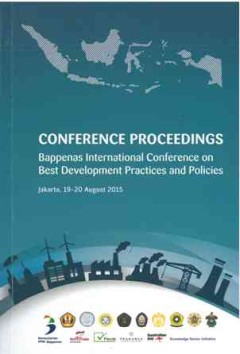
Conference proceedings Bappenas INternational Conference on Best Development …
- Edition
- -
- ISBN/ISSN
- 978-602-1154-51-9
- Collation
- vi, 276p.; 23 cm
- Series Title
- -
- Call Number
- 338.959 8 ARI c
- Edition
- -
- ISBN/ISSN
- 978-602-1154-51-9
- Collation
- vi, 276p.; 23 cm
- Series Title
- -
- Call Number
- 338.959 8 ARI c

Sometimes I think it is hell to be a girl: a longitudinal study of the rise o…
Despite wide recognition in media studies, the significance of technology is often understated or overlooked in radio and sound studies. This article addresses this absence in a longitudinal study of uses by radio listeners and radio hosts of an �automatic telephone tape recorder� (ATTR) in a Danish youth radio segment. The study shows that the two groups developed a range of uses for the ATTR …
- Edition
- Volume 37, Issue 2 March 2015, pages 232-250
- ISBN/ISSN
- 0163-4437
- Collation
- -
- Series Title
- Media Culture & Society
- Call Number
- -
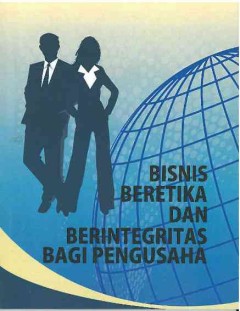
Bisnis beretika dan berintegritas bagi pengusaha
- Edition
- -
- ISBN/ISSN
- -
- Collation
- xvi, 68p.; 14,5 cm
- Series Title
- -
- Call Number
- 174 HAN b
- Edition
- -
- ISBN/ISSN
- -
- Collation
- xvi, 68p.; 14,5 cm
- Series Title
- -
- Call Number
- 174 HAN b

Media witnessing: exploring the audience of distant suffering
This article aims at demonstrating the relevance of the concept of �media witnessing� as an analytical lens for the study of audience engagement with media reports of distant suffering. Drawing upon existing theoretical work on the concept, the article approaches media witnessing as a distinct modality of audience experience and constructs an analytical framework for its study. Applying this fr…
- Edition
- Volume 37, Issue 2 March 2015, pages 215-231
- ISBN/ISSN
- 0163-4437
- Collation
- -
- Series Title
- Media Culture & Society
- Call Number
- -

Diaosi as infrapolitics: scatological tropes, identity-making and cultural in…
This article examines a recent bizarre phenomenon on China�s Internet � the enormous popularity of a scatological Chinese neologism called diaosi, which literally translates as �dick string�. Seeing the diaosi phenomenon as a case of �infrapolitics�, a space of nuanced discursive practices mediating overt online politics and benign online entertainment, we analyse the ways in which an infrapoli…
- Edition
- Volume 37, Issue 2 March 2015, pages 197-214
- ISBN/ISSN
- 0163-4437
- Collation
- -
- Series Title
- Media Culture & Society
- Call Number
- -

Power Politician or Fighting Bureaucrat: gender and power in German political…
This study interrogates the relationship of gender and power in the journalistic coverage of leading politicians. As an exemplar, we compare the coverage of German chancellor Angela Merkel and her (then) male counterpart, the social-democrat Frank-Walter Steinmeier. In a qualitative textual analysis of news and entertainment print media, we explain how politics is inscribed as a male field whil…
- Edition
- Volume 37, Issue 2 March 2015, pages 180-196
- ISBN/ISSN
- 0163-4437
- Collation
- -
- Series Title
- Media Culture & Society
- Call Number
- -

Media events, spectacles and risky globalization: a critical review and possi…
We review the research conducted to date on media events and media spectacles. We posit that the main phenomena challenging the current conceptualizations of media event and media spectacle are (1) the understanding of risk, (2) the context of disasters and (3) globalization and the mediation of news in the context of transnational and transitional societies. We suggest that more research on di…
- Edition
- Volume 37, Issue 2 March 2015, pages 162-179
- ISBN/ISSN
- 0163-4437
- Collation
- -
- Series Title
- Media Culture & Society
- Call Number
- -

You Media : audiencing as marketing in social media
Recent scholarship has offered a modification to audience labour theory in the context of social media, suggesting that rather than merely working by watching advertisements, social media users also produce data, which is commodified by social media companies. This article offers a further analysis of audience labour in social media using Facebook�s Sponsored Stories as a case study. Sponsored …
- Edition
- Volume 48, Issue 1 January 2015, 50-67
- ISBN/ISSN
- 0163-4437
- Collation
- -
- Series Title
- Media Culture & Society
- Call Number
- -

Transcending the medical/media opposition in research on news coverage of hea…
Health and medicine are major topics of news coverage, but research on health and medical reporting has remained mainly confined to specialist subfields, with less impact on broader academic fields, including journalism studies, than would seem warranted by its importance. This article argues that assumptions implicit in much of this literature have limited the development of a wider tradition …
- Edition
- Volume 37, Issue 1 Januari 2015, pages 85-100
- ISBN/ISSN
- 0163-4437
- Collation
- -
- Series Title
- Media Culture & Society
- Call Number
- -
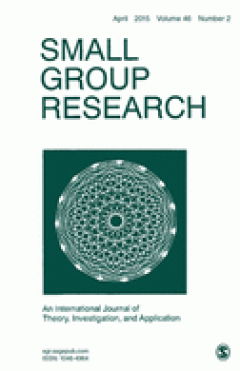
Exploring the Hidden-Profile Paradigm: A Literature Review and Analysis
Much of our knowledge of team information processing has been influenced by the hidden-profile paradigm. In this review, we employ the input�mediator�outcome (IMO) team effectiveness framework to organize a systematic and comprehensive review of the knowledge accumulated in this area during the last three decades. The use of the IMO framework highlights important aspects of team dynamics that h…
- Edition
- Volume 46, Issue 5 Oktober 2015, pages 489-535
- ISBN/ISSN
- 1046-4964
- Collation
- -
- Series Title
- Small Group Research
- Call Number
- -

Isles of Wonder : performing the mythopoeia of utopic multi-ethnic Britain
Within this article, I interrogate the mediated �narratives of nation� told through the London 2012 Olympic Opening Ceremony. Such narratives are not just pedagogic, they are political and ideological processes that require us to pose questions about the place of the past in the present and with regard to who is entitled to speak that past. I suggest that the ceremony performed an �aesthetic of…
- Edition
- Volume 37, Issue 1 Januari 2015, pages 68-84
- ISBN/ISSN
- 0163-4437
- Collation
- -
- Series Title
- Media Culture & Society
- Call Number
- -
 Computer Science, Information & General Works
Computer Science, Information & General Works  Philosophy & Psychology
Philosophy & Psychology  Religion
Religion  Social Sciences
Social Sciences  Language
Language  Pure Science
Pure Science  Applied Sciences
Applied Sciences  Art & Recreation
Art & Recreation  Literature
Literature  History & Geography
History & Geography